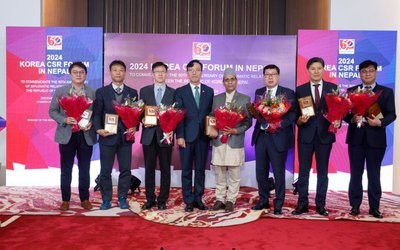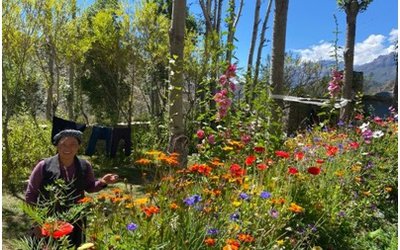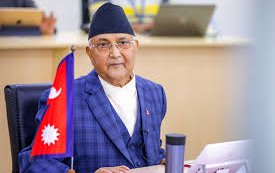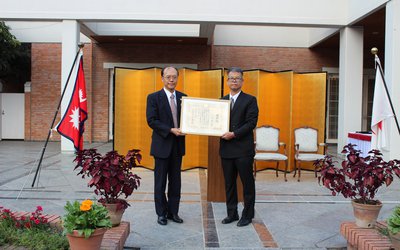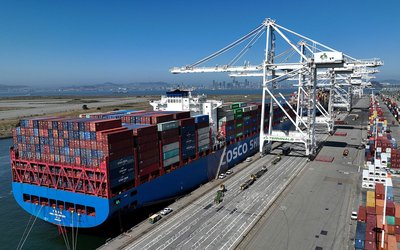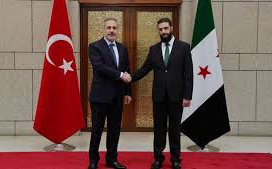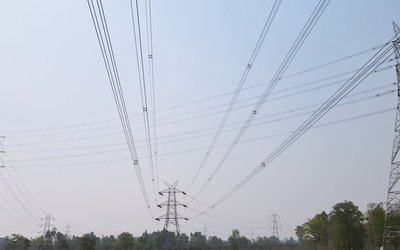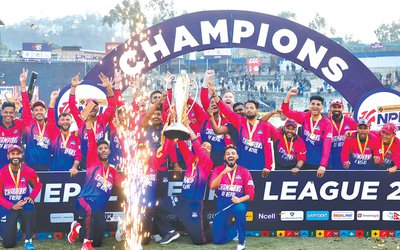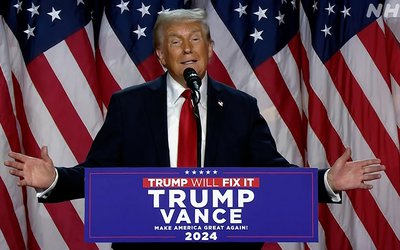Which way is Nepal's politics heading? Recent developments including fears of Nepal becoming a failed state after the dissolution of the Constituent Assembly (CA) remind me of a seminar in 2004, in which presenting the theme paper I had written “The challenge in Nepal is to make the inevitable process of change peaceful, democratic and progressive” (See Challenges to leadership, the Kathmandu Post 2005-4-19). Commenting on it, a foreign scholar warned “Nepal is the next Rwanda”. Thanking her for the concern, I explained that the nature of Nepali society and Nepal's conflict are different. To recollect, Maoists were waging their people's war and monarchists were trying to consolidate their rule by saying “support us or the Maoists will take over”; mainstream political parties had shot themselves in the foot; civil society was asking in exasperation “who wants peace here?” Conflict experts were preparing for the long haul. Meanwhile Nepalis were killing each other.
Back from the brink: Then, an idea, a peaceful national democratic progressive political centre isolating extremists of all sides became the rallying point against violence and autocracy. Many have forgotten the days of the insurgency and others are busy claiming credit or assigning blame for the peace process that has brought Nepal from there to here. Various stages of negotiations had started and failed. Only a combination of intellectual audacity, political will and deft diplomacy created the national/international convergence in support of peace and democracy. The Five Step Path to Peace and Democracy leading to the Twelve Point Understanding, successful People’s Movement, reinstatement of the House of Representatives, Interim Government, Comprehensive Peace Accord (CPA) and the CA election are all results of this creative convergence.
The CA made Nepal a Republic; inheritor of a long history left his palace peacefully bidding adieu in a press conference; a citizen’s son became President and the rebel leader the executive Prime Minister. So, politics of consensus produced some miracles, Nepalis felt proud for bringing Nepal back from the brink and Nepal’s friends cheered.
Towards the brink again: Since those momentous changes, few new (or not so new) individuals have reached positions of power but people are only suffering the agonies of this never ending transition and misrule instead of enjoying the fruits of change. More critically, power at any price, for any purpose is turning consensus to confrontation and crisis. Rather than focusing on healing the wounds and wiping the tears of the victims of old injustices and recent violence Nepal’s politics is being pushed towards ethnic and regional conflicts. The dilemma between the politics of identity which is by nature conflict prone, divisive and disruptive and politics of better livelihood which needs cohesion, stability and peace is best reconciled by balancing power, the instrument, with justice, the goal, of politics. Failure of the CA and its ultimate demise is creating further confusion and crisis with deep divisions on the way forward.
Complicating domestic politics are the effects of globalization. Present generation of Nepali elites have surpassed all their predecessors in entangling their lust for personal power and privilege with the complexities of international power politics so much that society is “over-exposed”, the elite divided and politics polarized. In such a situation the role of the state, the central institution responsible for domestic politics, economic policy, national security and foreign relations is crucial. But Nepal is like a stateless state. Danger signs are everywhere-in the street, scholarship, media, political parties and government. Diversity of caste, ethnicity, language, region, religion, division of ideologies with communists against democrats, communists against communists, democrats against democrats, Maoists against Maoists, NC against NC, UML against UML, monarchists against republicans, Hindu against secular, unitary against federal state, tussle between the judiciary and the executive and confusion in the security sector-what are they if not signs of the classic Hobbesian war of all against all scenario?
Perplexing as it seems, despite poverty, illiteracy, injustice and exploitation of the past and chaos and confusion of today, culture of co-existence and tradition of tolerance is keeping Nepal together. Infect the ethnic, linguistic, religious and regional diversities with extremism of ideologies, fundamentalism of religions, psyche of intolerance and tools of violence, add people’s hunger/anger, multiply them with egos, ignorance, arrogance, greed for power and conflicts of interests, mix them with regional/global complexities and how long will it take for Nepal to tear itself apart?
Promise denied: Everyone invokes "the people" to justify their individual, ethnic, regional and party agenda. But what is being done may have little to do with the people who want to enjoy the fruits of their hard work in peace and security, came out in the millions for the promise of a sovereign, independent, democratic, peaceful and prosperous Nepal for all Nepalis. Is such a Nepal in the making? The first step in the journey towards such a Nepal is a realization that the real conflict here today is about political culture; what comes first, personal, community/regional/party or national interest? And the choices are simple between right and wrong, justice and injustice, peace and violence, selfish power grab and honesty, compromise and sacrifice more than ideology, class, caste, ethnicity, region or religion on which politics is focused.
Amidst the confusion the genuine demands of better recognition and livelihoods, the real national agenda of durable peace, new constitution, free and fair election and good governance under a new political dispensation with fresh mandate of the people is getting lost. Have any political party or leader shared their vision of where they want to take Nepal collectively as a society-country-nation-state in the next five, ten or twenty years and how? Without a minimum consensus on such a vision how could the CA agree and promulgate the Constitution? The ray of hope created by the successful regrouping of the Maoist Army Combatants, handover of their weapons and cantonments to the State has now been bungled with the whole exercise in the risk of unraveling. Any wonder, leaders on whom people reposed so much faith and received so much international support are losing credibility?
Bringing Politics Back on Track: Nepal faces multiple problems but the distrust among the main political actors is the key. Restoring trust is now possible only with a new national consensus government. Only such a government can bring the main political forces together for restarting the journey towards peace, democracy and prosperity. Specifically, the new government should work on the following:
• Resolve the problem of the Maoist Army Combatants with commitment of all major political actors on peaceful competition for power
• Institutionalize parts of the constitution agreed by the CA
• Agreement on remaining parts with transitional arrangements on areas that need more work
• Hold free and fair elections and hand over power to the new political dispensation
• Until then, run the day to day administration, maintain law and order with strict enforcement of the rule of law
• Effective governance, zero tolerance on corruption and inefficiency
• Short term relief measures for wiping the tears-healing the wounds of those most affected by old injustices and recent violence
• Prepare the groundwork for the longer term prosperity of the people
• Restore the faith of the people in democracy
• Strengthen good relations with the international community and restore relations of trust and confidence with the two immediate neighbors
Leadership: Ultimately, politics is about values and leadership. Exercising state power by ignoring right and wrong, compromising with vital national interests makes society unjust, nation-state weak. When they see this happening people begin to lose faith in the system and those running it. Lack of “values consensus” increases violence paralyzing the state. Effective governance can smooth the twists and turns of transition arresting violence and crime, improving justice and order. But a dysfunctional state under incompetent leadership exacerbates political division, economic stagnation, social decay and national decline internally creating distrust with friends and well wishers externally. Then problems turn into real crises.
Many people may not know or may have forgotten about Rwanda, a nation of 10 million people in the Great Lakes Region of Africa, also known as Tropical Switzerland. In 1994 within 100 days 800,000 people were killed there in the conflict between two ethnic groups. Nepalese can be proud that they are different. They have ended the decade long internal conflict and brought Nepal back from the brink. But, if not careful, the Maoist class war could turn into the classic Hobbesian war of all against all. If that happens Nepal could make Rwanda look like a sideshow. This will, of course, be catastrophic for Nepal but it will also be unfortunate for our friends and neighbors.
Power obsession of politicians is mainly responsible for the failure and eventual demise of the CA recently, democracy remaining fragile, worsening people's livelihoods, the state threatened by violence internally and weakened externally since long. People are so alienated from politics that understandably there are calls for new leadership and a non-political government. But realistically cooperation among the major political forces is still the only way out of the crisis. A national consensus government and leadership of wisdom and courage can still bring Nepal's politics back on track, restarting the journey towards peace, prosperity and democracy.
After the last NC national convention I wrote about the Mother of All Challenges facing Nepal and the NC (Spotlight Oct. 29 Nov. 18, 2010). Time has come for all, particularly the Maoists, champions of republicanism, to show wisdom; the first citizen's son elected President of the Republic, to show courage and the NC leaders, torch-bearers of the democratic awakening, maturity to collectively demonstrate that Nepal's republican rulers can meet the challenges facing the country.
Former Ambassador Dr. Shambhu Ram Simkhada (sambins@gmail.com) has also taught International Relations at the Geneva School of Diplomacy
- SWISS SUPPORT: Construction Of A Trekking Trail In Koshi
- Dec 19, 2024
- PM OLI'S VISIT TO CHINA: BRI Agreement
- Dec 16, 2024
- RASUWAGADHI AND SANJEN: Begin Generation
- Dec 03, 2024
- NEPAL, INDIA ELECTRICITY TRADE Nepal's Advantage
- Dec 02, 2024
- PM Oli'S VISIT TO CHINA: Nepal's Dilemma
- Dec 01, 2024

